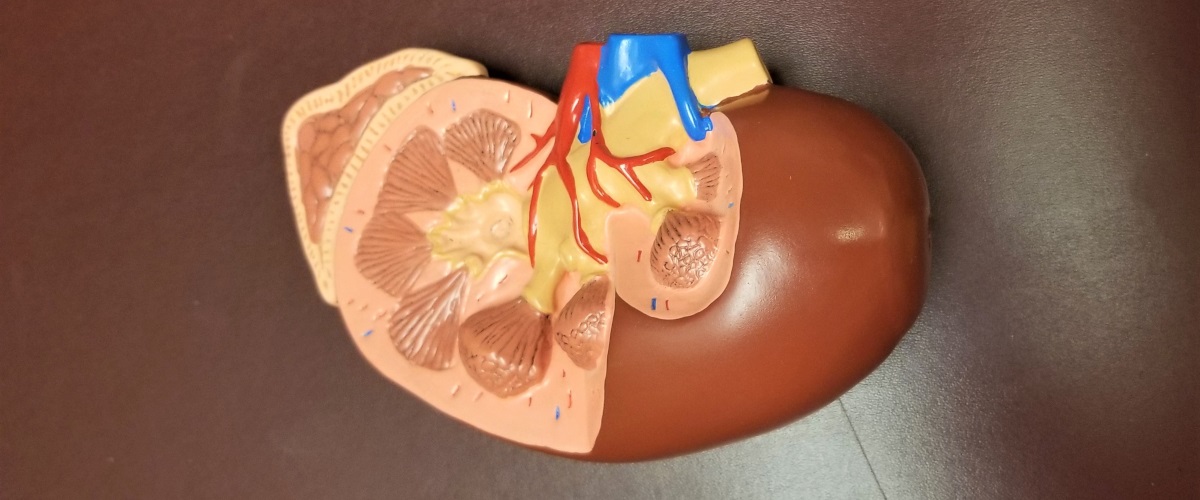Nephrology and Kidney Diseases

Nephrology and Kidney Diseases
Nephrology is a medical science that deals with kidney health and diseases, as well as hypertension. A nephrologist or nephrology specialist is an internal medicine specialist who has received 3 years of additional training in this field.
What are the functions of the kidneys?
Kidneys are one of the vital organs in the body. The kidneys are essentially responsible for the removal of harmful waste materials that are formed as a result of metabolism in the body and accumulated in the blood through urine, and also to keep the water and various salts, acid and base elements in the body in normal values. The kidneys also have other important functions. Kidneys play a role in the production or breakdown of some hormones in the body. For example, it is an important regulator of blood production. In addition, the production of vitamin D, which regulates bone formation, calcium and phosphorus balance, is completed in the kidney. Other functions of our kidneys are to regulate blood pressure and also to remove drugs and toxins from the body.
Due to which diseases do our kidneys does not work?
The most common causes of kidney diseases in the world and in our country are listed as follows. Kidney disease due to diabetes (diabetic nephropathy) comes first . Diabetic kidney disease is also common in our society, as diabetes is at a high rate of approximately 15% of the population. Hypertensive kidney disease (hypertensive nephropathy) due to hypertension is the second most common kidney disease. Since approximately 30% of the population has hypertension, it is understood that this group of kidney disease is also quite common. Nephritis group diseases (such as glomerulonephritis, interstitial nephritis) are among the third most common causes of kidney diseases. Nephritis either directly belong to the kidneys (primary) or develop as a result of other organ system diseases(secondary) (such as some rheumatism, blood, heart diseases). Among the less common diseases, there are hereditary, cystic, tumoral and kidney diseases due to stone disease.
The incidence of kidney disease in the community in Turkey have been determined as about 15.7% of the entire population. If we adapt our current population this rate corresponds to about 13-14 million kidney patients in Turkey. In other words, these numbers show that approximately one out of every 6 people has kidney disease.
What are the common symptoms in kidney patients?
In the majority of kidney diseases, there may not be a warning symptom in the early stage and therefore the diagnosis is made after the disease has progressed. During an incidental health screening, kidney disease can be detected due to abnormal findings in blood or urine.
Symptoms that can occur in kidney patients are: swelling (edema) of the face, eyelids, legs and sometimes the whole body, high blood pressure, shortness of breath, decrease or increase in urine amount, change in urine color, weakness, loss of appetite, nausea, vomiting, weakening, itching, skin bleeding, skin wounds, tendency to bleeding, bone pain, numbness and burning sensation in the feet, confusion, seizure, and coma may be seen in advanced renal failure.
Various diseases occur in other organs and tissues in patients with advanced stage renal failure. As a result of the decrease in blood production, anemia, heart failure due to accelerated cardiovascular diseases, increased risk of heart attack, arteriosclerosis and vascular occlusion, high blood pressure resistant to treatment, heart rhythm disorders, bone resorption and bone fractures, non-healing skin wounds may develop.
What are the diagnostic methods used in kidney diseases?
The first test done to determine kidney disease is a urinalysis. Substances and cellular elements that can be found in the urine in certain limits or not at all are investigated. Protein or albumin in the urine is normally very small, and their increase outside of certain conditions is an important evidence of the presence of kidney disease. In addition, the increase in cellular elements such as red blood cells and white blood cells may indicate the presence of kidney disease.
The amounts of substances such as urea, keratin, and various salts, which should not exceed a certain amount in the blood by being excreted from the kidneys, are measured by blood tests. In addition, special blood tests are applied to some kidney diseases that measure special substances and hormones that should not be found in the blood or whose amount is increased.
Abnormalities in the kidneys and urinary tract are revealed by imaging methods such as ultrasonography, MRI, Computed Tomography, and Scintigraphy.
Kidney biopsy is an important examination to guide the diagnosis and treatment of kidney diseases. Biopsy is a simple procedure performed with limited numbing, and a very small tissue sample is taken by entering the kidney through the skin with a special needle. The cause and degree of the disease are determined by pathological examination of the tissue.
What Can Be Done to Prevent Development or Progression of Kidney Disease?
Public awareness of kidney disease is very low. Therefore, kidney disease progresses until the last stage by causing chronic kidney failure. This situation causes a high rate of death or disability. However, when chronic kidney disease is diagnosed early, it can be prevented or its progression can be slowed down.
The most risky groups in developing chronic kidney disease are; diabetes patients, high blood pressure patients, cardiovascular patients, family kidney disease and advanced age. Other risk factors include obesity, smoking, kidney stones, recurrent urinary tract infections, excessive use of pain medication and connective tissue diseases.
One of the two diseases that most commonly cause kidney disease is diabetes (Diabetes Mellitus) and the other is high blood pressure (Arterial hypertension). In Turkey, 33% of the adults have high blood pressure (27-28 million), 16% has diabetes (13-14 million). In order to prevent kidney disease, these patients should be treated effectively and also nephrology checks should be done at regular intervals due to the possibility of developing kidney disease. Thus, the onset or progression of kidney disease can be effectively prevented.
Likewise, in patients with diseases belonging to other systems that may cause kidney disease (rheumatic diseases, blood diseases, cardiovascular diseases, hereditary, cystic or other diseases), it is necessary to check whether it causes kidney impairment or not.
In addition, drugs known to be harmful to the kidneys should be avoided as much as possible, and these substances should not be used, especially in patients with kidney disease. Among the drugs known to be harmful to the kidneys, there are pain relievers-rheumatic drugs, contrast agents used in imaging, and some antibiotics.
On the other hand, adequate fluid intake, early treatment of urinary tract infections, avoidance of obesity and excessive nutrition, reduction of salt consumption, and adequate physical exercise are important issues for kidney health.
How and by what methods are kidney diseases treated?
First of all, the main cause of kidney disease is investigated and treatment is directed according to the underlying cause. For example, in a kidney disease that develops due to diabetes or high blood pressure, effective treatments of these diseases are required first. If a secondary cause such as primary kidney disease or rheumatic kidney disease is determined, some special immunosuppressive drugs are used.
In case of late diagnosis and treatment of kidney disease or inadequate response, kidney disease progresses and leads to end-stage renal failure.
What are the treatment options in end stage chronic kidney failure?
The first is dialysis methods. Dialysis is the process of performing some of the filtration functions of the kidneys that have lost their functions due to kidney failure by different methods. In the first method, called hemodialysis, dialysis is performed using a dialysis machine and an artificial filter system. In this procedure, which is performed 3 days a week for 4 hours, the patient's blood is sent to the filtration system in the dialysis machine with special serum sets and dialysis is performed. The other dialysis method is abdominal (peritoneal) dialysis, and dialysis is performed by giving and taking dialysis fluid into the abdomen through a silicone catheter placed in the abdominal cavity and using the filtration feature of the abdominal membrane.
Another important treatment option in end stage renal failure is kidney transplantation. It is possible for patients to have a longer and better quality of life by performing a living or cadaver kidney transplantation from the appropriate tissue group. Kidney transplantation is successfully performed in many organ transplant centers in our country.
Nephrology
Assoc. Prof. Dr. İsmail Rıfkı Ersoy











